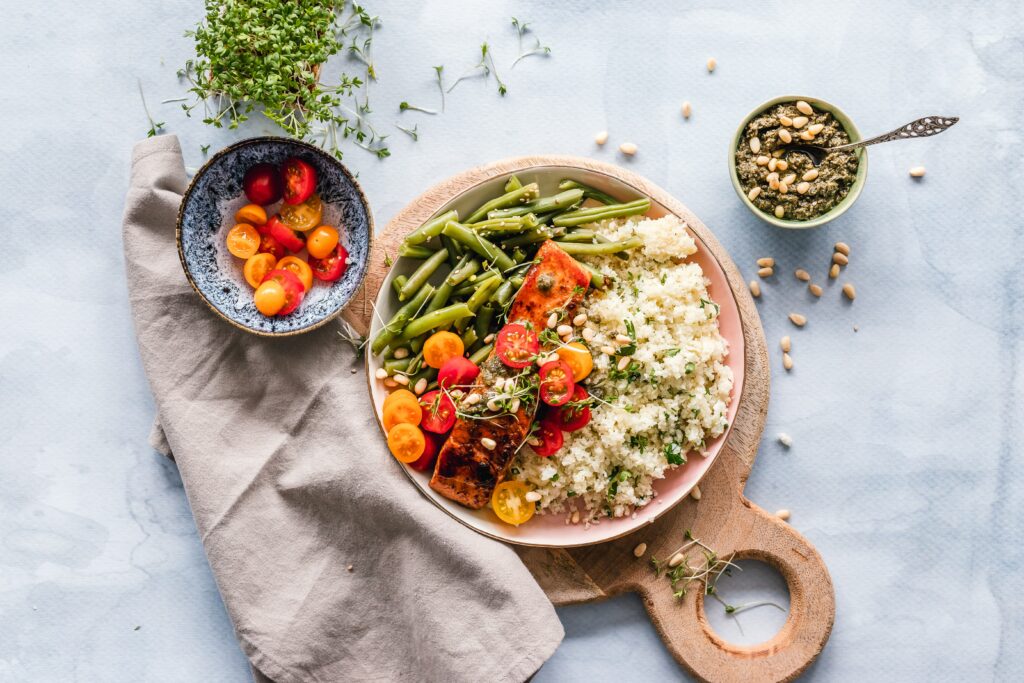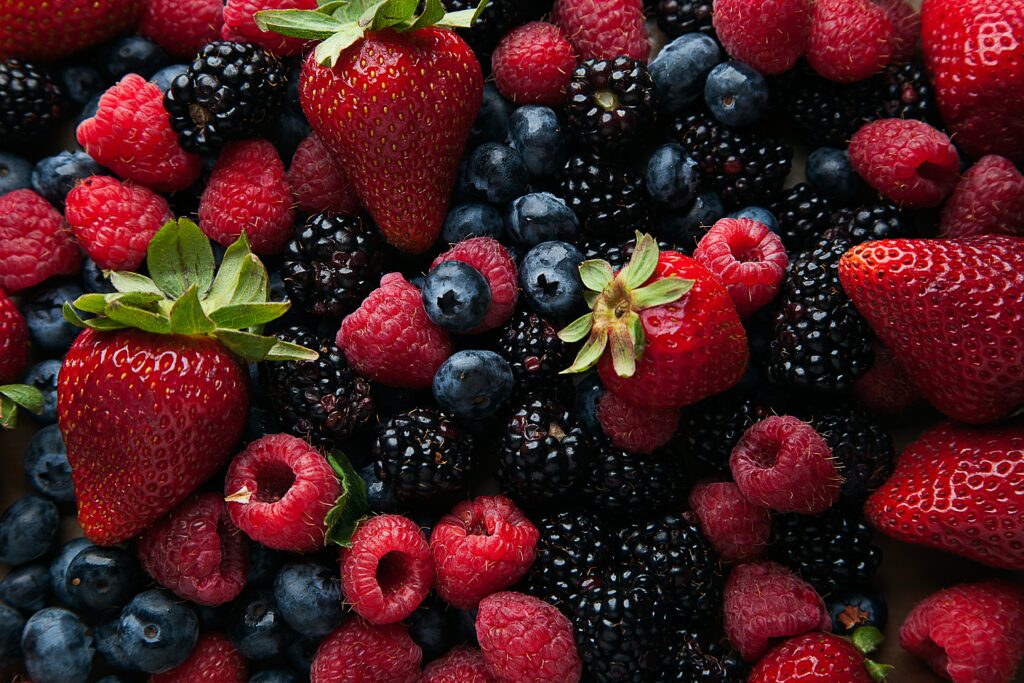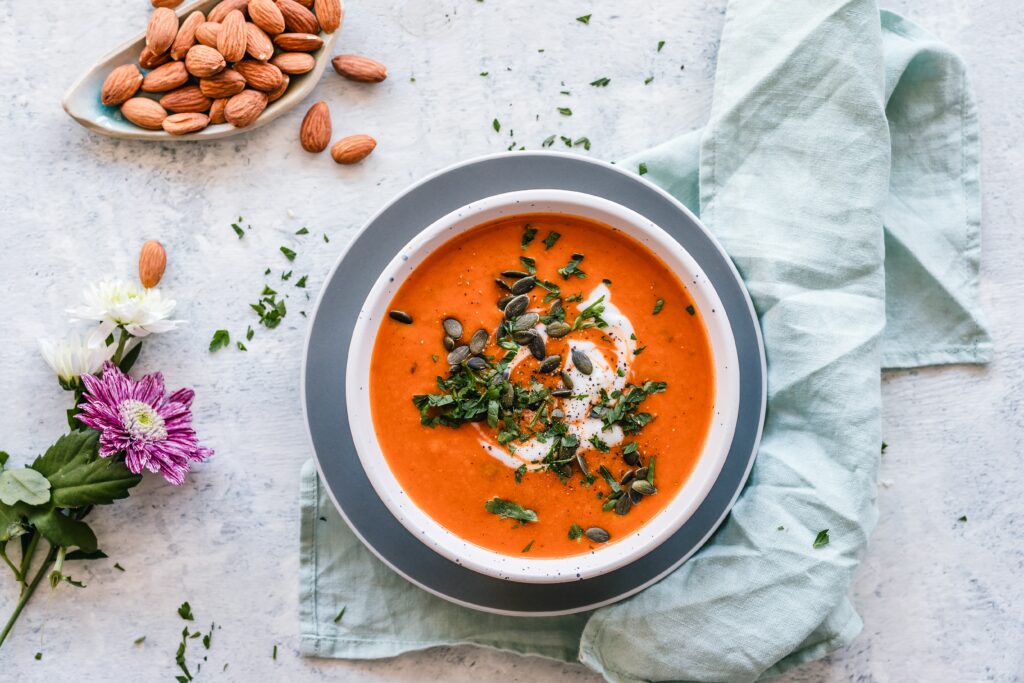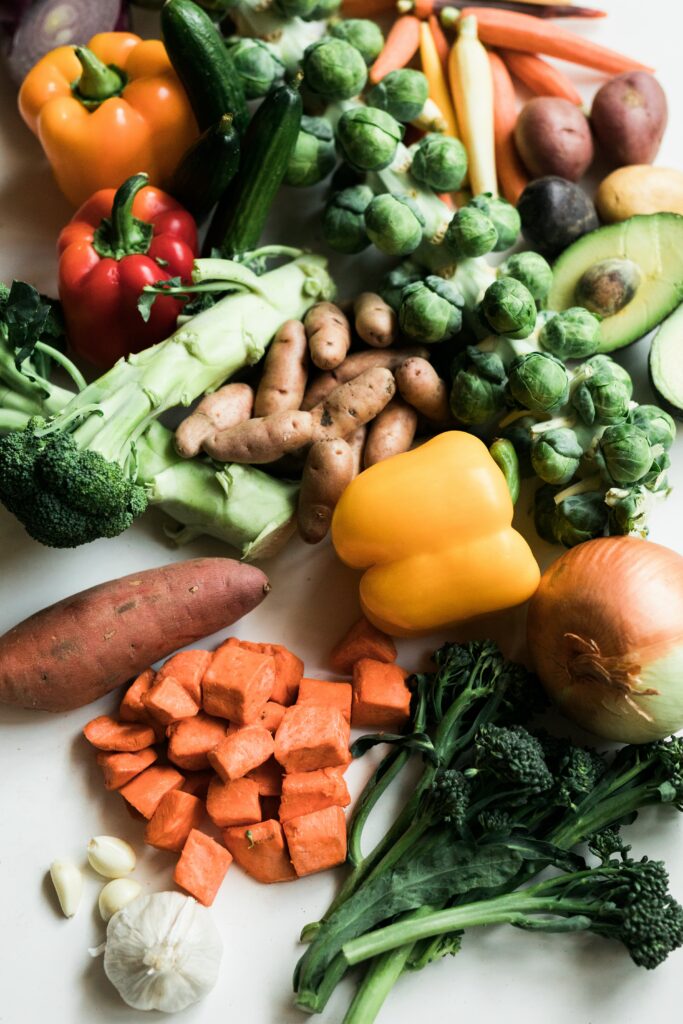When we’re young, it’s easy to gloss over the advantages of having sharp vision, bouncing back from illness, being able to skip down the block without knee pain, etc. While aging is inevitable, that doesn’t mean youthfulness should fade—entirely! From the foods we eat to the lifestyle we prioritize, we can profoundly impact how we move through the world. By taking care of our bodies, we can contribute to our longevity. Speaking of, today I’m sharing the best foods for longevity. While your exercise regime, sleep, and general quality of your life matters, so does the food on your plate. Let’s dig into specific ingredients for a sharp brain, good vision, a strong heart, and a robust immune system.

why are anti-inflammatory foods important?
When it comes to improving the quality—and length—of your life, you want to focus on anti-inflammatory foods. Unfortunately, chronic inflammation (caused from an unhealthy diet and lifestyle) forces your body to work in overdrive to achieve normal functionality. That extra work is what ultimately damages your cells. Eventually, this can increase your risk of chronic diseases like type 2 diabetes, heart disease, and cancer. By keeping chronic illness at bay, you increase your chances of living a long, health-full life.
While creating food fear is not the goal, it’s important to know what foods can help or hinder your cellular and organ health.
Your daily diet matters
Simply by incorporating daily movement (walking counts!), prioritizing sleep, and loading up on vegetables, lean protein, and healthy fats, having a once-a-baseball-season hot dog isn’t likely to trigger an inflammatory response. Neither is a slice of chocolate cake. That said, consider your daily diet. If you consistently lean towards refined carbs (white pasta), sugar, and unhealthy oils, that hot dog or piece of cake is more likely to trigger an inflammatory response. Ultimately, one food eaten in one instance will not determine the net inflammatory outcome. Most often, it’s your comprehensive dietary patterns that matter the most.

8 FOODS That FIGHT INFLAMMATION
While certain foods can be inflammatory, there are also plenty of anti-inflammatory foods. Eating a diet rich in nutrient-dense foods can be a game-changer. Consider eating more omega-3 fatty acids, fiber-rich vegetables, and leafy greens. Spices count too (turmeric, ginger, cinnamon, etc.). The easiest way to begin? Add color. I typically recommend at least three colors per meal. For example, roasted wild-caught salmon with brown rice and sautéed spinach in ghee. Or, eggs scrambled in olive oil with bell pepper, sweet potato, and arugula. Below are nourishing, anti-inflammatory food choices. Naturally, these are also some of the best foods for longevity, too.
AVOCADOS
Avocados have omega-3 fatty acids, along with potassium, magnesium, fiber, and heart-healthy monounsaturated fats. In one study, participants who consumed avocado with a hamburger, as opposed to just a hamburger, had lower levels of a few inflammatory markers.
BELL PEPPERS
Bell peppers are high in vitamin C and antioxidants that have powerful anti-inflammatory effects. They also provide the antioxidant quercetin, which may reduce oxidative damage.
BERRIES
From strawberries to raspberries, berries are an incredible source of antioxidants. They contain antioxidants called anthocyanins, compounds that may have effects on reducing the risk of diseases. Berries are known to be one of the best foods for longevity.
BONE BROTH
Bone broth is very nourishing food for healing intestinal permeability. In other words, it helps the gut lining. Bone broth contains collagen, which supports the gut lining and reduces inflammation.
OLIVE OIL
Extra-virgin olive oil, specifically, is rich in monounsaturated fats, which are linked to a reduced risk of cardiovascular disease, brain cancer, and other detrimental health conditions. Unlike more refined olive oils, extra-virgin olive oil offers great anti-inflammatory benefits.
MUSHROOMS
Mushrooms have been reported to contain antioxidant properties. These antioxidant properties enable them to neutralize free radicals. In fact, research shows that shiitake mushrooms may boost your immune system. Along with culinary mushrooms, consider adding adaptogenic mushrooms to your diet. Try this chaga mushroom powder for immunity boost! It’s delicious, comforting, and perfectly spiced.
SALMON
Salmon, sardines, mackerel, etc., are fatty fish with omega-3s, which research has shown has potent anti-inflammatory properties. EPA and DHA, both present in these fish, reduce inflammation that can lead to chronic illness and disease.
SEEDS
Chia and flaxseeds are both high in omega-3 fatty acids, which are proven inflammation fighters. Best of all, they’re super easy to incorporate. You can add a couple of tablespoon of ground flaxseeds or chia seeds to your cereal, oatmeal, or yogurt, baked goods, or smoothies.
See here for inflammatory foods to avoid.

what to eat for a healthy brain
Who doesn’t want to avoid or delay brain-related issues, like Alzheimers? For a sharp brain, load up on blueberries, walnuts, and farro!
Blueberries
Blueberries are packed with antioxidants. Because of this, a growing body of research shows that blueberries may help ward off cognitive decline and improve cognition in older adults. Blueberries are also fantastic for skin health. Turn them into blueberry chia jam, add them to smoothies, or top off your morning oatmeal with this delightful fruit.
Walnuts
Next up, walnuts. It’s ironic that this wrinkly nut resembles a brain because it harbors a slew of nutrients for the brain. In one study, consuming walnuts helped adults perform better on cognitive tests of memory and concentration. Likely, due to walnuts’ polyphenols and polyunsaturated fat. Aim for at least two servings of walnuts per week (about 1/2 cup).
Farro
Lastly, farro. Whole grains like farro, quinoa, and barley are rich in B vitamins. And B vitamins are known to help prevent memory and may slow the rate of cognitive decline. Not to mention, B vitamins also help your body more efficiently use all the other nutrients you consume.

what to eat for improved eyesight
When it comes to good vision, prioritize eggs, bell peppers, and peanuts.
Eggs
Eggs are practically nature’s superfood. The yolks are filled with vitamin A, lutein, and antioxidants. This trio helps to protect vision and prevent age-related eye diseases. Choline, also found in eggs, supports good eyesight and is necessary for a healthy pregnancy.
Bell Peppers
All colors count! Bell peppers contain several eye-centric nutrients: vitamins A and C, as well as quercetin, lutein, and more. Vitamin C may help lower the risk of cataracts and other vision problems by preventing oxidation in eyes’ lenses.
Peanuts
Love peanut butter? Here’s another excuse to spread on the good stuff: peanuts are packed with vitamin E, which helps prevent the breakdown of eye tissue. They’re also filled with healthy fats that help you absorb lutein and other antioxidants.

What to eat for a strong heart
Foods for a strong heart come from plants: legumes, plant-based oils, and spinach.
Legumes
Whether you’re a garbanzo bean loyalist or prefer a bowl of lentils, eating legumes (also known as pulses) help keep your heart healthy. They’re naturally high in fiber, which binds to cholesterol particle sin the intestines. So, instead of LDL (bad) cholesterol making its way to your heart, it’s excreted—thanks to fiber. Beans also contain folic acid, a B vitamin necessary for healthy veins.
See here for a printable list of high-fiber foods.
Plant-based oils
Think: olive oil, coconut oil, and avocado oil. All of these contain polyunsaturated fats, which are important for heart health. The combination of these healthy fats and their antioxidants helps protect blood vessels from inflammation.
Spinach
Did you know that spinach is rich in magnesium? And magnesium is strongly linked to cardiovascular disease prevention. Magnesium also plays a role in regulating blood pressure, blood sugar levels, and more. Not to mention, spinach is a source of calcium, and calcium helps regulate blood pressure.

What to eat for a robust immune system
Preventing illness is top of mind—especially going into the colder months. To prevent illness, support your immune system with garlic, tea, and cauliflower.
Garlic
A member of the allium family (onions, scallions, and chives are also in the club), garlic contains a compound that fights inflammation ad boosts white blood cells’ ability to ward off illness. To reap their benefits, add more than one clove to your favorite savory dish.
Green Tea
It’s well-studied that the leaves of black, green, oolong, and other caffeinated teas offer powerful immune support.
CAuliflower
Cruciferous veggies like cauliflower, broccoli, bok choy, and cabbage contain compounds that help protect against certain cancers. Not to mention, they’re rich in fiber and aid in satiation. ‘Tis the season to roast cruciferous veg!

Images courtesy of Unsplash. This article is for informational purposes only. It is not, nor is it intended to be, a substitute for professional medical advice, diagnosis, or treatment and we recommend that you always consult with your healthcare provider.



Leave a Reply